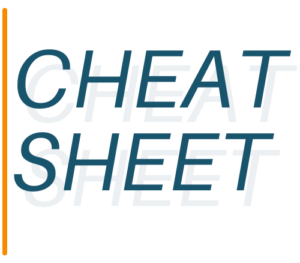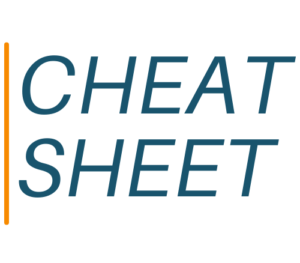
Updated Cheat Sheet: Bloomberg TV Producers and Talent
You need to be logged in to view this content. Please Log In. Not a Member? Join Us

You need to be logged in to view this content. Please Log In. Not a Member? Join Us

By popular demand, here’s a cheat sheet with 59 authors who posted predictions last year and can be expected to do so again. (Last year’s cheat sheet contained 52.)

As a product category, project management software has lasted 40 years or more. PM was never marginalized/subsumed by office suites, or forsaken by IT buyers.

In this short and sweet cheat sheet, we’ve got eight targets focused at least in part on quantum security. This is still a nascent field, though the “quantum” term has been bandied about for a decade or two.

It’s perhaps a bit surprising that our 13 “AI in healthcare” targets are more or less the usual suspects in healthcare edit. Most trades can’t afford to hire additional reporters just to cover the AI aspects of the healthcare beat.

Here’s a dozen New York-based targets covering banking or fintech. They’re the reporters you might want to wrangle when a client is “in town” and wants to get together with a reporter for a trend-spotting session.

Here’s a list of 13 targets focused on personal finance. Remember that Insider has an entire section dedicated to the topic. We present the go-to’s in the field. Please tell us whom we missed and we will add.

Here’s the rundown on 21 reporters who cover the fast-growing world of robotics. AI and machine learning are only part of the picture. We chose targets deeply immersed in the technology; as always we lead with the high-readership Tier 1s.

You need to be logged in to view this content. Please Log In. Not a Member? Join Us

This cheat sheet contains 23 targets ranging from deep-tech to big picture in the world of automotive. EV edit is represented in this list, but only partially.
YOUR ACCOUNT
FRIDGE NOTES
This is majorly tl;dr, but recent research from FT Strategies and Reuters empirically uncovers every trend there is, when it comes to the health of the media business. In short, “the media” is barely breakeven, here and around the world. AI search may prove devastating.
The WSJ this week launched CEO Brief, a newsletter designed to inform readers, and to attract new members to the WSJ Leadership Institute. This organization is already a Dow Jones profit center, and a great example of how Tier 1 can lessen dependence on advertising. Former Fortune CEO Alan Murray runs the institute and is the nominal editor of CEO Brief — and promises to read every bit of reader mail — though he has delegated the writing of the newsletter to subordinates in the early going.
Fast Company’s Lydia Dishman has joined (SWMS subscriber) Method Communications as VP of content strategy. Lydia joins an already strong content team, which includes former NY Times reporter Tim Race and B2B tech edit vet John Foley.
“I’m leaving to build something new,” Alex posted on X today. He spent 12 years at Forbes as a reporter and a builder of databases and lists. It’s time he gets to keep the money.
Axios reported on Jan. 24 that private equity firm Blackstone will sell IDG/Foundry, publishers of InfoWorld, Computerworld and Network World (and owners of IDC) to another private equity firm called Regent, which bought streaming video channel Cheddar in 2023. Remains to be seen how the ownership change will affect IDG’s venerable IT titles, but it’s unlikely their budgets will go up.
Unionized writers have secured new protections governing the use of generative AI in member newsrooms, reports the Hollywood Reporter. The union — Writers Guild of America, East — represents Fast Company, Wired and many other prominent titles. The union won agreement that publications “will not lay off current staff employees due to the use of generative AI,” and also that “advance notice [must be given] if the company plans to make the use of generative AI systems a requirement of [editors’] jobs.”